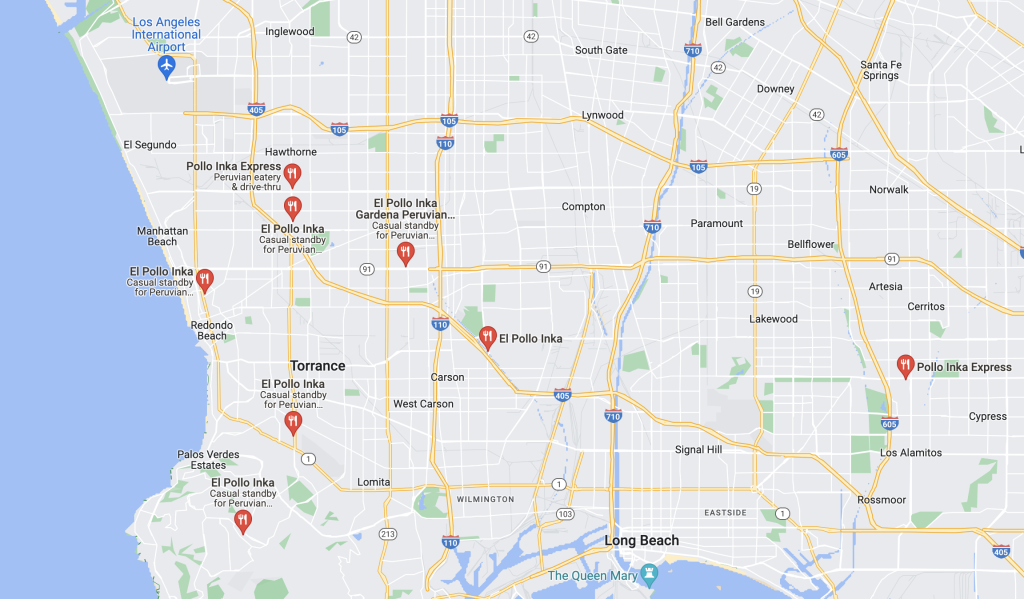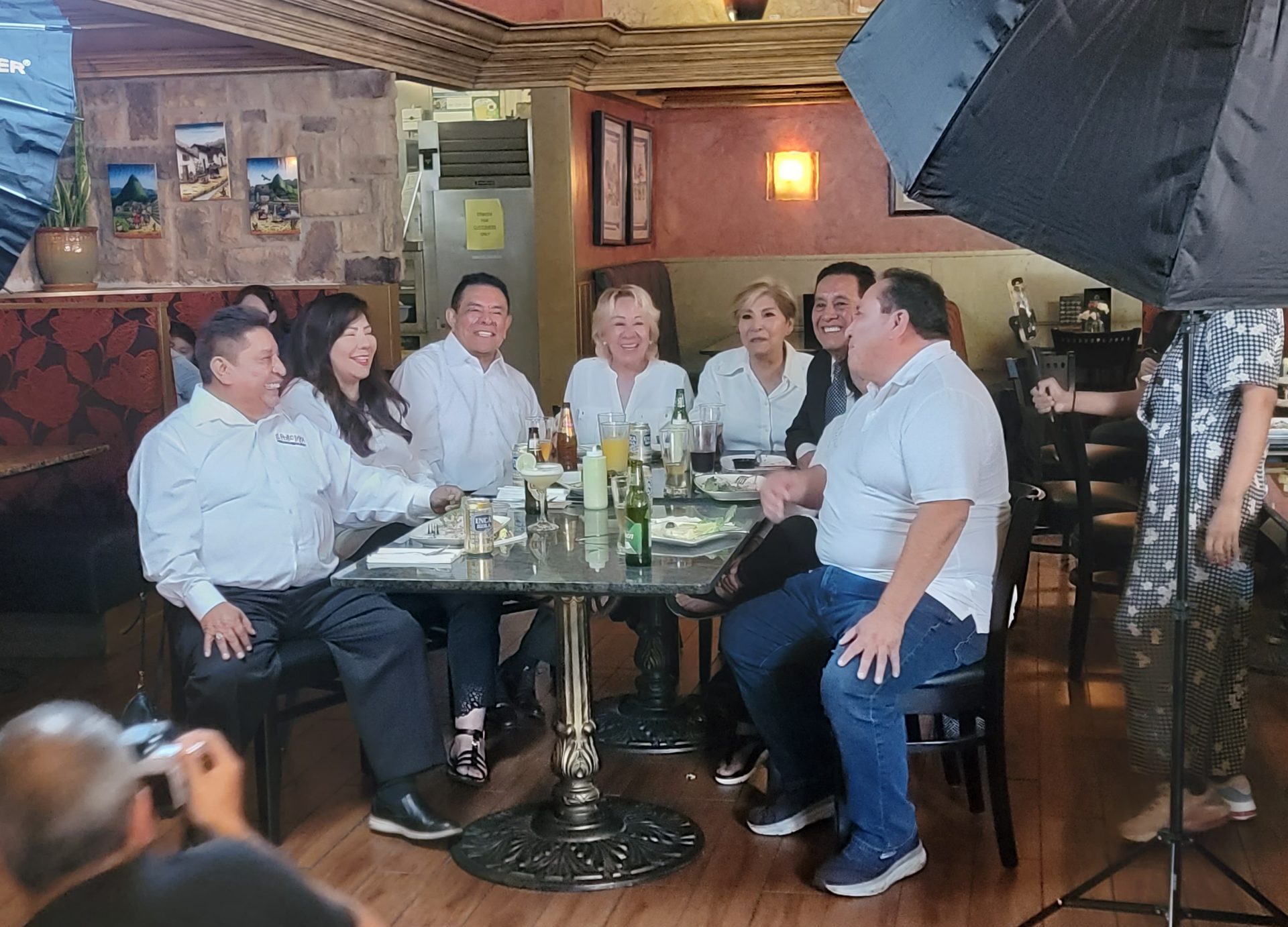Peruvian food might be one of the most talked about cuisines right now – especially after the Lima-based Central won the coveted title of Best Restaurant in the World 2023 – but that wasn’t always the case. For Peruvian expats moving overseas in the 80s, finding traditional ingredients and restaurants that served their favorite dishes proved an almost impossible mission. That’s where entrepreneurs like Rosa and Salomon Jaime came into play; they were among the first to establish a family-owned restaurant chain that brought homemade Peruvian flavors to Los Angeles.
“My mom would make aji amarillo paste in Peru and then freeze it to bring it to the U.S.,” Rosa told LATINA. “Back in the day, they would let you take it through customs.” The family’s dedication to getting the best ingredients paid off, as their restaurant, El Pollo Inka, was able to serve a wide variety of Peruvian dishes since they opened their first location in 1987.
Owning a restaurant wasn’t in Rosa’s plan when she migrated to the U.S. The Huánuco native first arrived in Connecticut, where she studied to become a nurse, but her husband very much disliked the weather and decided they make the move to Los Angeles. There, Rosa worked at a sewing company for years, learning the ins and outs of the trade until she saved up enough to open a clothing factory. The couple ran the business for over a decade but eventually sold it due to operational challenges.
As the Jaimes were thinking about their next business endeavor, Rosa was cooking Peruvian dishes for her husband’s recreational soccer matches. The players would always encourage her to turn her cooking skills into a business so Rosa thought about opening a pollería, a restaurant specializing in Peruvian-style rotisserie chicken. She soon found the perfect spot for her new venture thanks to an impromptu visit to a Lawndale mall.
“We went to a nearby shopping center to get some food and suddenly, I [saw] chicken in a rotisserie oven just like in Peru. So, I rushed in and ordered ¼ chicken. It was awful,” Rosa said. She complained to the owner, who told her that the restaurant was up for sale. Rosa called her husband who showed up ready to buy the place. “My husband immediately wrote a check and sealed the deal. We left very excited but then asked ourselves, ‘And the money?’” After all, they actually didn’t have enough cash to buy the restaurant. “I told Salomon, ‘Let’s sell our house’ and he was like ‘Are you insane?’” Rosa said. “We priced it low so that it would sell fast and in just three days, it was off the market. That’s how the story of our restaurant begins.”
The word spread fast about Lawndale’s newest pollería, soon bringing in Peruvian and non-Peruvian customers who would patiently wait in line outside the five-table restaurant. It caught the eye of Los Angeles Times food writer Linda Burum, who named El Pollo Inka one of her “top choices” for Peruvian food in LA back in 1989. While pollo a la brasa was the restaurant’s signature dish, the eatery served a wide variety of dishes including the Andean appetizer ocopa (boiled potatoes served with black mint sauce)–which Burum described as “the best version of ocopa I’ve tasted.”
Rosa attributes El Pollo Inka’s ever-growing diverse clientele to Peru’s culinary fusions, which share commonalities with multiple world cuisines. “Our Arab customers loved seco de cordero (Peruvian lamb stew) because they’re used to eating a lot of lamb. The Chinese customers really liked lomo saltado (Chinese-Peruvian stir-fried beef) because it reminded them of their flavors,” Rosa said.
The restaurant also debuted a spicy green sauce that soon stole customers’ hearts, as it was the perfect dip for fries, rotisserie chicken, and everything on the menu. While Ají Verde is now a staple at Peruvian restaurants in the US, you won’t find it at pollerías in Peru. This is because Rosa claims that Salomon came up with the recipe at their home in LA. Before opening their restaurant, the family would go to El Pollo Loco to enjoy the closest they could find to Peruvian rotisserie chicken. While it was tasty, Salomon considered it was missing Peruvian spice. He mixed ají amarillo paste and jalapeños–which aren’t used in Peruvian cuisine–among other ingredients to create a sauce that tastes distinctly Peruvian, and yet, like no other ají-based sauce. When El Pollo Inka opened, Ají Verde became a staple and is now synonymous with Peruvian food in the US. “Now, if you go to any Peruvian restaurant, you’ll find the green sauce. They might be trying to imitate ours, each with their own twist, but there’s nothing like the ají my husband created,” Rosa said.
While the Jaime’s owned El Pollo Inka’s first location, it soon became a family affair. Rosa’s younger siblings went from doing the dishes at the restaurant to opening their own franchises across LA, including Pollo Inka Express – a drive-thru version of the restaurant. “I never expected to have a restaurant and that it would be such a successful family business,” Rosa said. “My success isn’t only mine, it’s my siblings’ too.”

Map showing El Pollo Inka locations across Los Angeles
As El Pollo Inka continued to gain brand recognition, the Jaimes received external business proposals to continue expanding their restaurant empire. A family friend opened a franchise in Miami, and they are now in talks with international investors looking to open franchises in the Philippines, Korea, and the UAE.
But becoming a big-brand name hasn’t changed their core mission to serve their community in the best way possible. In 2007, El Pollo Inka donated thousands of dollars in relief aid to displaced Peruvians following one of Peru’s most destructive earthquakes ever. They also provided meals to essential workers at the height of the pandemic. And now, they are often involved in local fundraisers and social events to foster community.
“To become something better, achieve your dreams, and make sure everything goes well, we have to be united,” Rosa said. “Success is loving, caring, and supporting each other.”
Alejandra Arevalo is a Peruvian multimedia journalist based in New York covering the music industry at Chartmetric.









